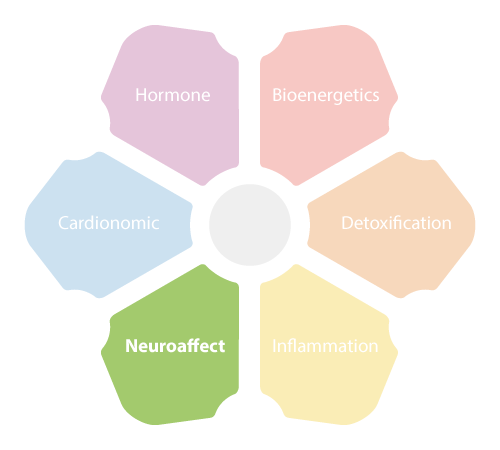 Applied kinesiology is a fancy term for muscle testing, but not in the conventional manner in which you may be thinking. This test does not evaluate how strong you are, or how much weight you can lift at the gym. Applied kinesiology tests muscles for its strengths and weaknesses. It refers to utilizing the body and the mind’s energy system and determine if any of the issues such as nutritional deficiencies or allergies should be addressed.
Applied kinesiology is a fancy term for muscle testing, but not in the conventional manner in which you may be thinking. This test does not evaluate how strong you are, or how much weight you can lift at the gym. Applied kinesiology tests muscles for its strengths and weaknesses. It refers to utilizing the body and the mind’s energy system and determine if any of the issues such as nutritional deficiencies or allergies should be addressed.
It is often believed that the subconscious mind is aware of what is going on within our bodies, as well as what is necessary to heal it. There is widespread research carried out on the power of the subconscious mind and its effect on our health. So, does the subconscious mind which is formed as a result of our innermost experiences and knowledge, help us to heal ourselves physically and mentally? One way of finding out is by applied kinesiology, an understanding of the strengths and weaknesses of our muscles.
Applied kinesiology was first explained by a Chiropractor named George Goodheart, Jr in 1964 as an attempt to test muscles and initiate therapy. Since then, it has undergone a tremendous amount of debate, to decide whether it can be considered as a useful and reliable diagnostic tool or not. Many argue that applied kinesiology is not a true diagnostic tool and its standard and reliability have not been adequately proven by research. The rest, on the other hand, continue to believe in the power and ability of applied kinesiology.
The majority of applied kinesiology practitioners are chiropractors, nutritionists, naturopathic doctors, massage and physical therapists.
Did you know that you are encompassed in an electrical grid made of pure energy? Energy runs through your body, including your muscles, and is the fuel that feeds over a trillion cells needed to keep you going. Your body gets the energy it needs through food, rest, and overall good mental and physical health. This flow of energy can be disrupted by intense emotions, thoughts, and junk food throwing the electrical circuit off balance. As a result of a ‘short circuit’, the muscles may become weak and makes you tired. Even though this is usually a temporary reaction, an excessive amount of chronic stressors can start a chain of events that may be similar to adrenal fatigue. When the muscles weaken, the body starts to speak its language and we can use applied kinesiology to understand what is going on.
 Physically, we know that when the body is exposed to prolonged or extreme stressors, both physical and psychological, the adrenal glands become fatigued. These glands are no longer able to keep up with the body’s demands for adrenal hormones, one of the primary hormones needed by the body to operate efficiently. This means that the normal method of responding to stress using the NeuroEndoMetabolic (NEM) stress response system is injured. All the integrated six systems that make up the NEM are affected in turn and the body begins to weaken in many areas.
Physically, we know that when the body is exposed to prolonged or extreme stressors, both physical and psychological, the adrenal glands become fatigued. These glands are no longer able to keep up with the body’s demands for adrenal hormones, one of the primary hormones needed by the body to operate efficiently. This means that the normal method of responding to stress using the NeuroEndoMetabolic (NEM) stress response system is injured. All the integrated six systems that make up the NEM are affected in turn and the body begins to weaken in many areas.
Muscle weakness is one of the first subtle signs that the body gives off when the energy systems are impacted. By testing the muscles using applied kinesiology, trained energy therapists can determine what events and emotions have weakened your body. It is a way to communicate between the subconscious mind and your body to get the answers.
Human Kinetics or Kinesiology is the science of human movement. It studies how the body moves and functions by applying scientific-based evidence and medical principles to the preservation, analysis, and health of human movement in all people.
Kinesiologists are involved in the rehabilitation and management of many disorders. They also develop policies for the rehabilitation of injuries, conduct research, assess human motor performance, develop policies for rehabilitation centers, and deal in occupational health and safety.
Applied kinesiology is not the same. It is the practice of using muscle testing to understand if the body needs therapy. The testing provides feedback on the status of the energy levels in the body. Applied kinesiology lies within the realm of integrative medicine and is required to be used alongside other standard diagnostic measures used by trained professionals to diagnose a condition.
The two sciences are separate entities in the medical and science fields and are completely unrelated.
 As the subconscious mind knows everything about the body, applied kinesiology uses muscle reactions to find out what core issues are affecting your body. It is simple testing of tapping various muscles and you respond to the questions either by saying yes or no. The trained eye can observe the muscle reaction and generate comprehensive feedback. For example, either the electrical circuit is working properly and the muscles have retained their strength or they have become weak due to a shutdown of the energy systems. The mind-body connection is evaluated through applied kinesiology, by asking various types of questions. Some examples include:
As the subconscious mind knows everything about the body, applied kinesiology uses muscle reactions to find out what core issues are affecting your body. It is simple testing of tapping various muscles and you respond to the questions either by saying yes or no. The trained eye can observe the muscle reaction and generate comprehensive feedback. For example, either the electrical circuit is working properly and the muscles have retained their strength or they have become weak due to a shutdown of the energy systems. The mind-body connection is evaluated through applied kinesiology, by asking various types of questions. Some examples include:
A positive answer or response to a scenario is one where the muscles stay strong, the energy is flowing and at full power. A negative response is one where the muscles weaken, energy has momentarily stopped flowing, and the ability for the muscles to perform properly has been temporarily halted. Applied kinesiology can be used as an invaluable tool for spiritual and mental healing.
Applied kinesiology testing can also detect signs of nutritional deficiencies, allergies, and other adverse food reactions. You are asked to place the food material in your hand, then chew, or suck the food, or place it under their tongue. The trained eye would detect the reaction of the muscles involved and identify any adverse effect. The tests are also able to pinpoint the specific organs, vascular group and the tissues that may be affected.
Many people do not believe in applied kinesiology and have questioned the credibility of this method. However, if done correctly by knowledgeable practitioners, muscle testing can work for the following reasons:

Many applied kinesiology practitioners have made tall claims that may not be 100% accurate. It is important to keep an open mind when trying this method. You should bear in mind that the feedback obtained from applied kinesiology testing is not the only diagnostic method available to determine your illness, allergies, nutritional deficiencies, or any other physical or mental ailment. Treatment choices should not be based only on this muscle testing method. Whilst, applied kinesiology is useful it is important to gather additional information, learn about it, and speak with your primary care provider about your health concerns. Also, if you discuss the results of your test it would help you make decisions about the next steps.
Muscle weaknesses are often caused by conditions such as Chronic Fatigue Syndrome or Adrenal Fatigue Syndrome (AFS).
If you feel you may have a chronic condition such as adrenal fatigue, it is important that you speak with a healthcare practitioner about your concerns. If you are exposed to a high level of chronic stress, you could suffer from AFS and receive a false negative on your applied kinesiology tests. AFS is a condition that could result in deteriorating health and needs immediate attention. To respond to stressors, all the six interrelated systems, of the NeuroEndoMetabolic Stress Response System, work together to bring back the hormone balance in the body. Chronic stress damages one or more of the body’s organs, severely affecting the entire body. It is recommended for you to find an Adrenal Fatigue Specialist who can help guide you through the journey of recovery so you can restore the functions to your NEM stress response.
Applied Kinesiology should always be regarded as a tool in wellness, but never a solution or an outcome. Always verify your results to ensure reliability and optimal wellness.
© Copyright 2020 Michael Lam, M.D. All Rights Reserved.
It may take some practice, but with consistency, you can use applied kinesiology on yourself. With practice, you can discover a whole new way to communicate with your body and heal emotional issues that may be inhibiting your personal development and growth.
